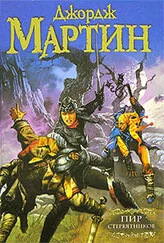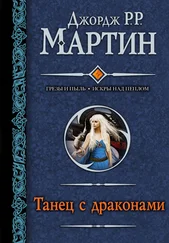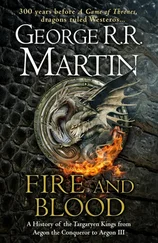So says the fool, but to be sure, all of this is fancy. The true tale of how Jaehaera Targaryen met her end will never be known. Mayhaps she did take her own life in some fit of childish despair. If murder was indeed the cause of her demise, however, for all these reasons, the man behind it could only have been Lord Unwin Peake. Yet without proof, none of this would have been damning…if not for what the Hand did afterward.
Seven days after the body of the little queen was consigned to the flames, Lord Unwin paid a call upon the grieving king, accompanied by Grand Maester Munkun, Septon Bernard, and Marston Waters of the Kingsguard. They had come to inform His Grace that he must put aside his mourning blacks and wed again “for the good of the realm.” Moreover, his new queen had been chosen for him.
Unwin Peake had married thrice and sired seven children. Only one survived. His firstborn son had died in infancy, as had both of his daughters by his second wife. His eldest daughter had lived long enough to marry, only to die in childbirth at the age of twelve. His second son had been fostered on the Arbor, where he served Lord Redwyne as page and squire, but at the age of twelve he had drowned in a sailing mishap. Ser Titus, heir to Starpike, was the only one of Lord Unwin’s sons to grow to manhood. Knighted for valor after the Battle of the Honeywine by Bold Jon Roxton, he had died only six days later in a meaningless skirmish with a band of broken men he stumbled on whilst scouting. The Hand’s last surviving child was a daughter, Myrielle.
Myrielle Peake was to be Aegon III’s new queen. She was the ideal choice, the Hand declared; the same age as the king, “a lovely girl, and courteous,” born of one of the noblest houses in the realm, schooled by septas to read, write, and do sums. Her lady mother had been fertile, so there was no reason to think that Myrielle would not give His Grace strong sons.
“What if I do not like her?” King Aegon said. “You do not need to like her,” Lord Peake replied, “you need only wed her, bed her, and father a son on her.” Then, infamously, he added, “Your Grace does not like turnips, but when your cooks prepare them, you eat them, do you not?” King Aegon nodded sullenly…but the tale got out, as such tales always do, and the unfortunate Lady Myrielle was soon known as Lady Turnips throughout the Seven Kingdoms.
She would never be Queen Turnips.
Unwin Peake had overreached himself. Thaddeus Rowan and Manfryd Mooton were outraged that he had not seen fit to consult them; matters of such import rightly belonged to the council of regents. Lady Arryn sent a waspish note from the Vale. Kermit Tully declared the betrothal “presumptuous.” Ben Blackwood questioned the haste of it; Aegon should have been allowed half a year at least to mourn his little queen. A curt missive arrived from Cregan Stark in Winterfell, suggesting that the North might look with disfavor on such a match. Even Grand Maester Munkun began to waver. “Lady Myrielle is a delightful girl, and I have no doubt that she would make a splendid queen,” he told the Hand, “but we must be concerned with appearances, my lord. We who have the honor of serving with your lordship know that you love His Grace as if he were your own son, and do all you do for him and for the realm, but others may imply that you chose your daughter for more ignoble reasons…for power, or the glory of House Peake.”
Mushroom, our wise fool, observes that there are certain doors best not opened, for “you never know what might come through.” Peake had opened a queen’s door for his daughter, but other lords had daughters too (as well as sisters, nieces, cousins, and even the odd widowed mother or maiden aunt) and before the door could close they all came pushing through, insisting that their own blood would make a better royal consort than Lady Turnips.
To recount all the names put forward would take more pages than we have, but a few are worthy of mention. At Casterly Rock, Lady Johanna Lannister set aside her war with the ironmen long enough to write the Hand and point out that her daughters Cerelle and Tyshara were maidens of noble birth and marriageable age. The twice-widowed Lady of Storm’s End, Elenda Baratheon, put forward her own daughters, Cassandra and Ellyn. Cassandra had once been betrothed to Aegon II and was “well prepared to serve as queen,” she wrote. From White Harbor came a raven from Lord Torrhen, speaking of past marriage pacts between the dragon and the merman “broken by cruel chance,” and suggesting that King Aegon might put things aright by taking a Manderly for his bride. Sharis Footly, widow of Tumbleton, made so bold as to nominate herself.
Perhaps the boldest letter came from the irrepressible Lady Samantha of Oldtown, who declared that her sister Sansara (of House Tarly) “is spirited and strong, and has read more books than half the maesters in the Citadel” whilst her good-sister Bethany (of House Hightower) was “very beautiful, with smooth soft skin and lustrous hair and the sweetest manner,” though also “lazy and somewhat stupid, truth be told, though some men seem to like that in a wife.” She concluded by suggesting that perhaps King Aegon should marry both of them, “one to rule beside him, as Queen Alysanne did King Jaehaerys, and one to bed and breed.” And in the event that both of them were “found wanting, for whatever obscure reason,” Lady Sam helpfully appended the names of thirty-one other nubile maidens from Houses Hightower, Redwyne, Tarly, Ambrose, Florent, Cobb, Costayne, Beesbury, Varner, and Grimm who might be suitable as queens. (Mushroom adds that her ladyship ended with a cheeky postscript that said, “I know some pretty boys as well, should His Grace be so inclined, but I fear they could not give him heirs,” but none of the other chronicles mention this affrontry, and her ladyship’s letter has been lost.)
In the face of so much tumult, Lord Unwin was forced to think again. Though he remained determined to wed his daughter Myrielle to the king, he had to do so in a way that would not provoke the lords whose support he needed. Bowing to the inevitable, he mounted the Iron Throne and said, “For the good of his people, His Grace must take another wife, though no woman will ever replace our beloved Jaehaera in his heart. Many have been put forward for this honor, the fairest flowers of the realm. Whichever girl King Aegon weds shall be the Alysanne to his Jaehaerys, the Jonquil to his Florian. She will sleep by his side, birth his children, share his labors, soothe his brow when he is sick, grow old with him. It is only fitting therefore that we allow the king himself to make this choice. On Maiden’s Day we shall have a ball, the like of which King’s Landing has not seen since the days of King Viserys. Let the maidens come from every corner of the Seven Kingdoms and present themselves before the king, that His Grace may choose the one best suited to share his life and love.”
And so the word went out, and a great excitement took hold of the court and city, and spread out across the realm. From the Dornish Marches to the Wall, doting fathers and proud mothers looked at their nubile daughters and wondered if she might be the one, and every highborn maid in Westeros began to primp and sew and curl her hair, thinking, “Why not me? I might be the queen.”
Yet even before Lord Unwin had ascended the Iron Throne, he had sent a raven to Starpike summoning his daughter to the city. Though Maiden’s Day was yet three moons away, his lordship wanted Myrielle at court, in hopes that she might befriend and beguile the king, and thus be chosen on the night of the ball.
That much is known; what follows now is rumor. For it was said that even as he awaited the arrival of his own daughter, Unwin Peake also set in motion sundry secret plots and plans designed to undermine, defame, distract, and besmirch those damsels he deemed his daughter’s most likely rivals. The suggestion that Cassandra Baratheon had pushed the little queen to her death was heard again, and the misdeeds of certain other young maidens, real or imagined, became common gossip about court. Ysabel Staunton’s fondness for wine was bruited about, the tale of Elinor Massey’s deflowering was told and retold, Rosamund Darry was said to be concealing six nipples under her bodice (supposedly because her mother had lain with a dog), Lyra Hayford was accused of having smothered an infant brother in a fit of jealousy, and it was put about that the “three Jeynes” (Jeyne Smallwood, Jeyne Mooton, and Jeyne Merryweather) liked to dress in squire’s garb and visit the brothels along the Street of Silk, to kiss and fondle the women there as if the three of them were boys.
Читать дальше




![Джордж Мартин - Сыны Дракона [лп]](/books/33039/dzhordzh-martin-syny-drakona-lp-thumb.webp)







